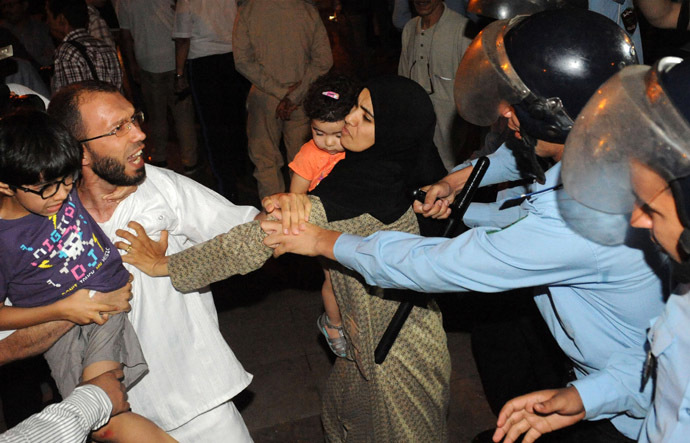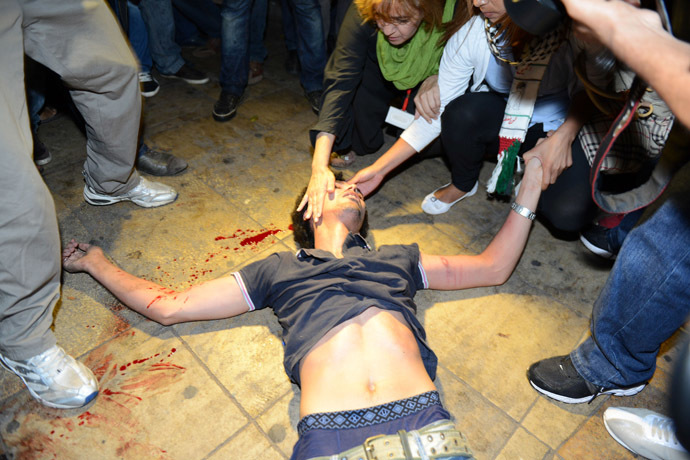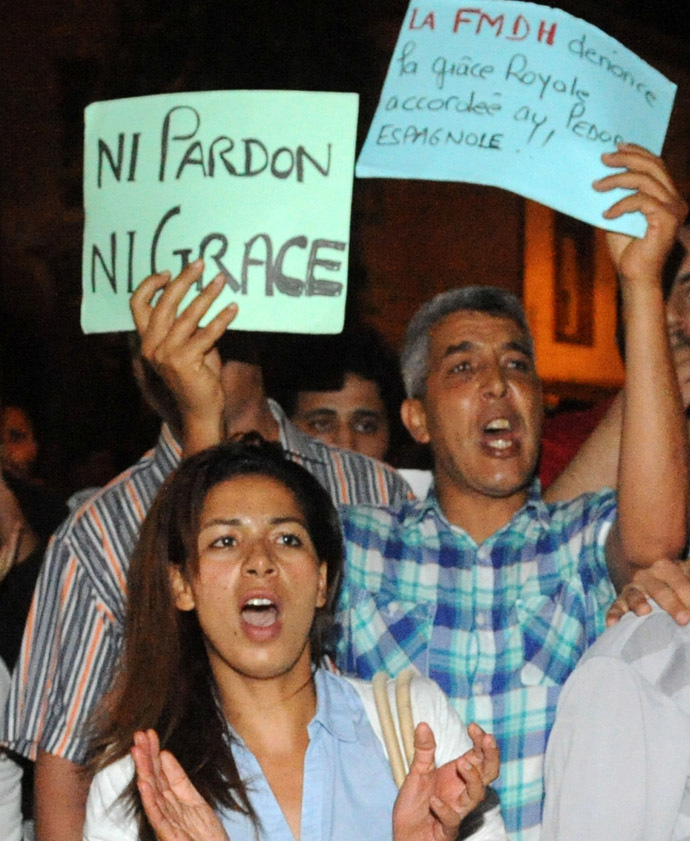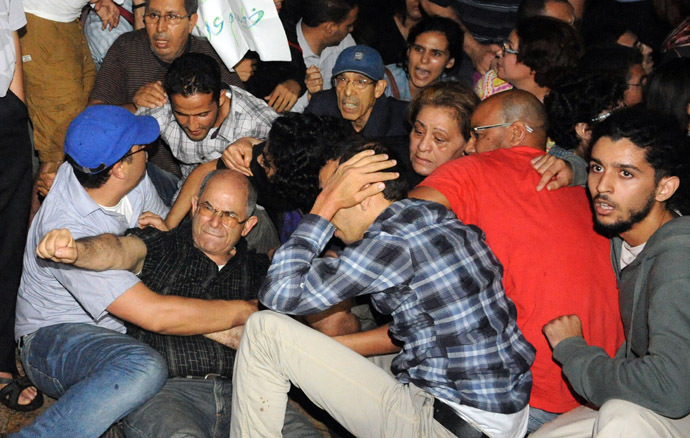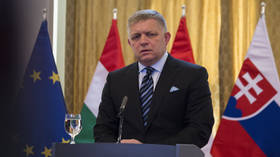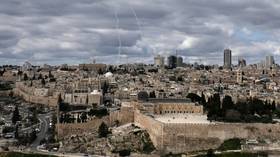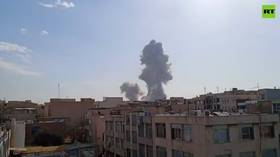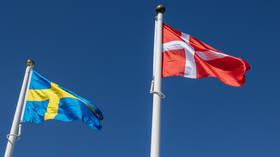Thousands protest freeing of Spanish pedophile in Morocco (PHOTOS)
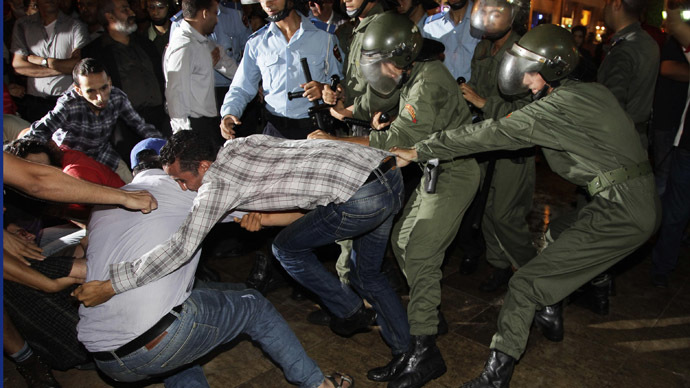
Riot police broke up a rally in Morocco where thousands of people protested a decision by the country’s king to pardon a Spanish pedophile who raped 11 local children. The pardon came at the request of Spain's King Juan Carlos.
Spanish citizen Daniel Fino Galvan, 64, was jailed for 30 years in 2011 by a court in the city of Kenitra, some 40 kilometers north of the Moroccan capital, Rabat, for raping 11 children, aged between 4 and 15. He was convicted after the videos he made of his crimes were used as evidence.
Moroccans infuriated by the pardon gathered in their thousands to the center of Rabat on Friday, where they clashed with police in front of the parliament building. Dozens of protesters, including reporters and photographers, were injured in clashes after police were ordered to disperse the rally.
Rallies against Galvan’s release also took place in the Moroccan cities of Tangiers and Tetouan.

After Juan Carlos’s request, King Mohammed agreed to pardon 48 Spaniards jailed in the country for various crimes. Galvan was somehow included in the list of prisoners to be pardoned.
In Morocco, the king has the right to pardon prisoners on special occasions, such as Throne Day on July 30. Yet the pardon requested from Morocco by Spain, the country’s former colonial ruler, has outraged public opinion in the North African state.
On Thursday, Morocco’s Justice Minister, Mustapha Ramid, confirmed to AFP that Galvan had been given a royal pardon, saying: “This individual will be extradited and he will be forbidden from entering Morocco.”

Morocco's Human Rights Association told Reuters that Galvan is “a retired Spaniard who owns two flats in Kenitra.” After being pardoned, the Spaniard was released Wednesday. His lawyer, Mohamed Benjeddo, said his client planned to leave for Spain on Thursday. The Spanish embassy declined to comment on Galvan's release.
Neither the Moroccan government nor King Mohammed’s office have commented on Galvan’s release.
Protesters have called Galvan’s pardon “an international shame” that “defends the rape of Moroccan children.”
One Twitter user described the king's pardon as “a second rape for the victims,” while blogger Nouhad Fathi wrote on Facebook: “Is this Morocco's way [of reaching] the long-sought [after] target of 10 million tourists a year?”
Morocco’s ruling moderate Islamist Party of Justice and Development called the decision to pardon Galvan “a mistake.”
“Moroccans have the right to demonstrate when they feel humiliated, and the authorities do not have the right to step in so violently,” said Abdelali Hamiddine, a senior party member.
In June, thousands joined a previous anti-pedophile march in
Morocco, in the coastal city of Casablanca, condemning sexual
exploitation and violence against children. The protests were
triggered by the arrest of a British pedophile who abducted a
six-year-old local girl.

